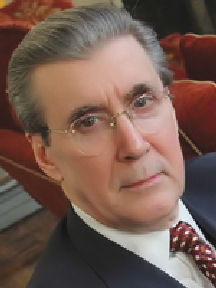
George Marlin
Here are books I recommend political junkies read while vacationing:
“Team America: Patton, MacArthur, Marshall, Eisenhower and the World They Forged” by Robert O’Connell.
In “Team America,” Dr. Robert O’Connell, a military historian and former professor at the Naval postgraduate school, has written an informative overview of the lives of the nation’s greatest World War II leaders. What I found most interesting is how these four men interacted with one another during military careers that began in the early 20th century. Needless to say, there were ego clashes—over war-time strategy, over promotions.
But, as O’Connell concludes, the key ingredients to the success of Team America was “mental agility, a gravitas that masked their intensity, and an almost intuitive understanding of how armies in the millions actually functioned and fought.” Were it not for their leadership in time of war and peace—“the world we know would be vastly different.”
“The War on the West” by Douglas Murray.
The associate editor of the British journal, “The Spectator” is an accomplished commentator on the human condition. He argues that the collapse of religion and political philosophy as guides for our day-to-day existence has been replaced with identity politics whose aim is to “politicize absolutely everything … to turn every human relationship into a political power celebration.”
The result, “in public and private, both online and off, people are behaving in ways that are increasingly irrational, feverish, herd-like and simply unpleasant.”
Murray laments in “The War on the West” that students “are offered a story of the West’s failings without spending anything like a corresponding time on its glories.”
They will never understand, he concludes, that it is Western culture “that gave the world life-saving advances in science and medicine and a free market that has raised billions of people around the world out of poverty and offered the greatest glowing of thought anywhere in the world….”
“Campaign of the Century: Kennedy, Nixon and the Election of 1960” by Dr. Irwin F. Gellman.
The presidential campaign of 1960 between Sen. John F. Kennedy and Vice President Nixon was one of the most exciting in the nation’s history. The two candidates, both World War II Navy veterans and in their 40s, vied to be the first leader of the nation born in the 20th century.
The coverage of that campaign and the subsequent Pulitzer Prize winning book, “The Making of the President 1960” by Theodore H. White, cast Kennedy as a knight in shining armor and Nixon as a black knight.
That narrative, which has been perpetuated for over 60 years, has been challenged by Gellman.
His outstanding work is based on previous unused sources. The result, Kennedy does not “come out as a saint” because “his campaign was far more corrupt and ruthless than has been presented.” And Nixon does not “come out as the villain or the foil; he ran a far cleaner operation than has been described.”
“The First Populist: The Defiant Life of Andrew Jackson” by David S. Brown.
For most of its history, the Democratic Party revered its founder, Andrew Jackson. But not anymore. He has been dismissed by the WOKE crowd as a white supremacist. Brown, the author of an excellent biography of historian Richard Hofstadter, attempts to place the nation’s seventh president in the context of his times—something contemporary leftists are incapable of doing.
Jackson was the nation’s first populist president. His political code could be summed up in four words: honor, self-reliance, equality and individualism.
Living by that code in the early 19th century, Brown points out Jackson “became the defining figure of his era, variously a hero, a sometime scoundrel, and to his enemies, a second Caesar.”
“Blood and Ruins: The Last Imperial War 1931-1945” by Richard Overy.
This distinguished British military historian attempts to recast the origins of the Second World War. He postulates that the conflict was “the last imperial war, with almost a century-long lead-up of global imperial expansion, which reached its peak in the territorial ambitions of Italy, Germany and Japan in the 1930s and early 1940s, before descending into the largest and costliest war in human history—and the end, after 1945, of all territorial empires.
“Blood and Ruins,” at 1,000 pages, is a long read—but worth the effort.
Happy reading on your vacations this summer.






